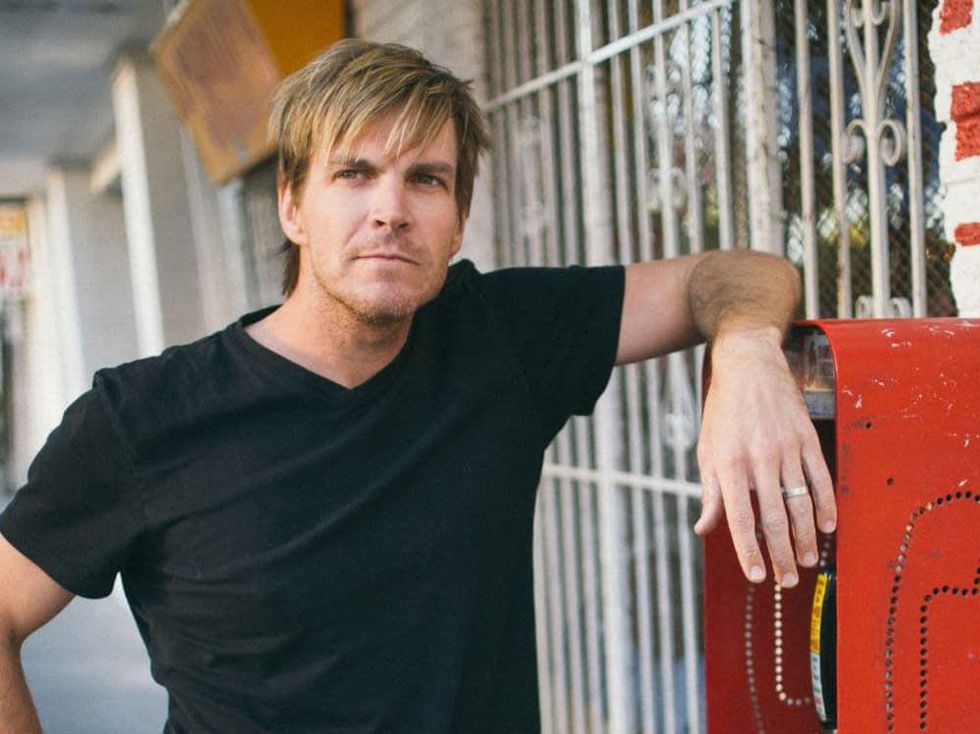Texas Music Knows No Bounds
Jack Ingram talks authenticity and taking Texas country beyond the Lone Star border
Jack Ingram is a Texas-born songwriter and performer whose aspirations go far beyond the borders of the Lone Star State. Like the legendary troubadours that have come before him, Ingram’s Texas identity is part of his charisma and authenticity, but he’s not making music for Texans only.
“My intention is to have as many people as possible hear and dig what I do musically. To put limitations on that, man, has never been my thing,” Ingram recently told Texas Music Scene.
“I am now, gratefully, at a point where I am confident that the only kind of artist I need to be for anything or anyone is authentic,” Ingram says.
Ingram’s two-decade career began with open mic appearances as a student at SMU, which were followed by regular gigs near the TCU campus and finally the pay-your-dues club circuits across Texas. While he’s rooted in Texas tradition and influence, his approachable country sound lends itself to mass appeal — and he’s seen his fair share of national success over the years.
After several highs and lows with regional and boutique record labels, Ingram found a true Nashville niche in 2005 when he was signed to independent label Big Machine Records (the home to household names like Taylor Swift and Tim McGraw). With the support of Big Machine, it didn’t take long for Ingram to make national waves.
He saw his first No. 1 hit on Billboard’s country chart with “Wherever You Are” and was named the Academy of Country Music’s “Best New Male Vocalist” in 2008. In 2009, Ingram released Big Dreams & High Hopes, his final release with Big Machine (and his latest album to date).
Ingram has since traded the Nashville scene for Texas simplicity, though his artistic goals are as lofty as ever — mirroring the likes of Willie Nelson, Waylon Jennings and Kris Kristofferson. “The guys that I grew up really digging on and really diving into, I knew they were from Texas, but I also knew that they were national and international artists,” Ingram says of his legendary influences.
More than their success, Ingram identifies with the roadblocks these musical masters inevitably faced and the perseverance that got them through it. “Both Willie and Waylon had their fair share of commercial failures in the early and even mid-points of their careers,” Ingram says. (Nelson was 42 when Red Headed Stranger came out, and he had his first No. 1 single as an artist.)
“I have found that people who like my music or like me tend to like my music or me whether I'm in Texas or Timbuktu,” Ingram says.
“I believe their breakthrough success and sustainability of that success came from a little good timing [the ’70s] and, more important, their continued pig-headedness in the belief that if they put out music that they believed in, then their fan base would grow, and existing fans would continue to follow them.”
If there’s one thing Ingram has, it’s an unwavering belief in his vision as an artist and an understanding that those who love his music will follow his career, wherever that path may take him. “I have found that people who like my music or like me tend to like my music or me whether I’m in Texas or Timbuktu,” Ingram says, “especially if they’re listening to a song they like.”
With that vision and integrity in mind, Ingram is in the process of recording a new album — his first since the Big Machine days. “The new record that I am still in the process of writing and recording is and has been an exercise in reclaiming my own ‘elbow room’ when it comes to making my music,” Ingram explains.
“There is a bit of a difference in making music where you are having to define your barriers in terms of lines that you will or will not cross, versus making a record where you simply press record, close your eyes and play. I am really not saying whether one method is better than the other in terms of commercial or artistic ‘success,’ but I bet you can guess which one is a lot more fun.”
The yet-to-be-released album is a chance for Ingram to stand his ground and focus on the authenticity that propelled him into the national spotlight years ago. “Because of all of the musical and business decisions I've made over the past 20 years (and especially the past seven), I am now, gratefully, at a point where I am confident that the only kind of artist I need to be for anything or anyone is authentic,” he says.
“Luck is for suckers. Compromises are for marriages. Music is for making.”



